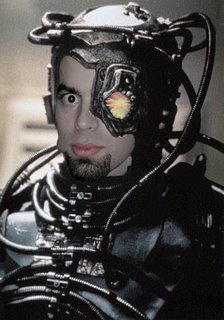Seems like the potential applications for this type of technology are almost limitless. Rapid testing of medicines, lowering cost and speeding up development times. Better interfaces for artificial limbs. Potential sensory and nervous system repair for the deaf, blind and paralyzed. The stuff of science fiction continues to get closer to us every day as the march of technology progresses.European researchers have created an interface between mammalian neurons and silicon chips. The development is a crucial first step in the development of advanced technologies that combine silicon circuits with a mammal’s nervous system.
The ultimate applications are potentially limitless. In the long term it will possibly enable the creation of very sophisticated neural prostheses to combat neurological disorders. What's more, it could allow the creation of organic computers that use living neurons as their CPU.
Once there, that signal can be recorded using the chip's transistors. What's more, the neurons can also be stimulated through the capacitors. This is what enables the two-way communications.
The project tested the device by stimulating the neurons and recording which ones fired using standard neuroscience techniques while tracking the signals coming from the chip.
The development of the interface and chip are crucial for this new technology, but problems remain. "Right now, we need to refine the way we stimulate the neurons, to avoid damaging them," says Vassanelli.
That's one of the problems the team hopes to tackle in a future project. Right now a proposal has been prepared which could tackle this and many other problems, including how to communicate with the neurons using genes.
"Genes are where memory come from, and without them you have no memory or computation. We want to explore a way to use genes to control the neuro-chip," says Vassanelli.
While it’s easy to envision some nightmare scenarios of how this technology might be used, I certainly believe the benefits to be… well, out of this world. The potential enhancement to quality of life this could bring to those unable to move, sense or communicate is incredible. The shift in the economics of medical development also holds out huge promise to many who suffer from various diseases and ailments that this might help cure, by lowering the costs of discovery and innovation.
I think there is just one key question that remains to be answered…
Are you prepared to be assimilated?

No comments:
Post a Comment